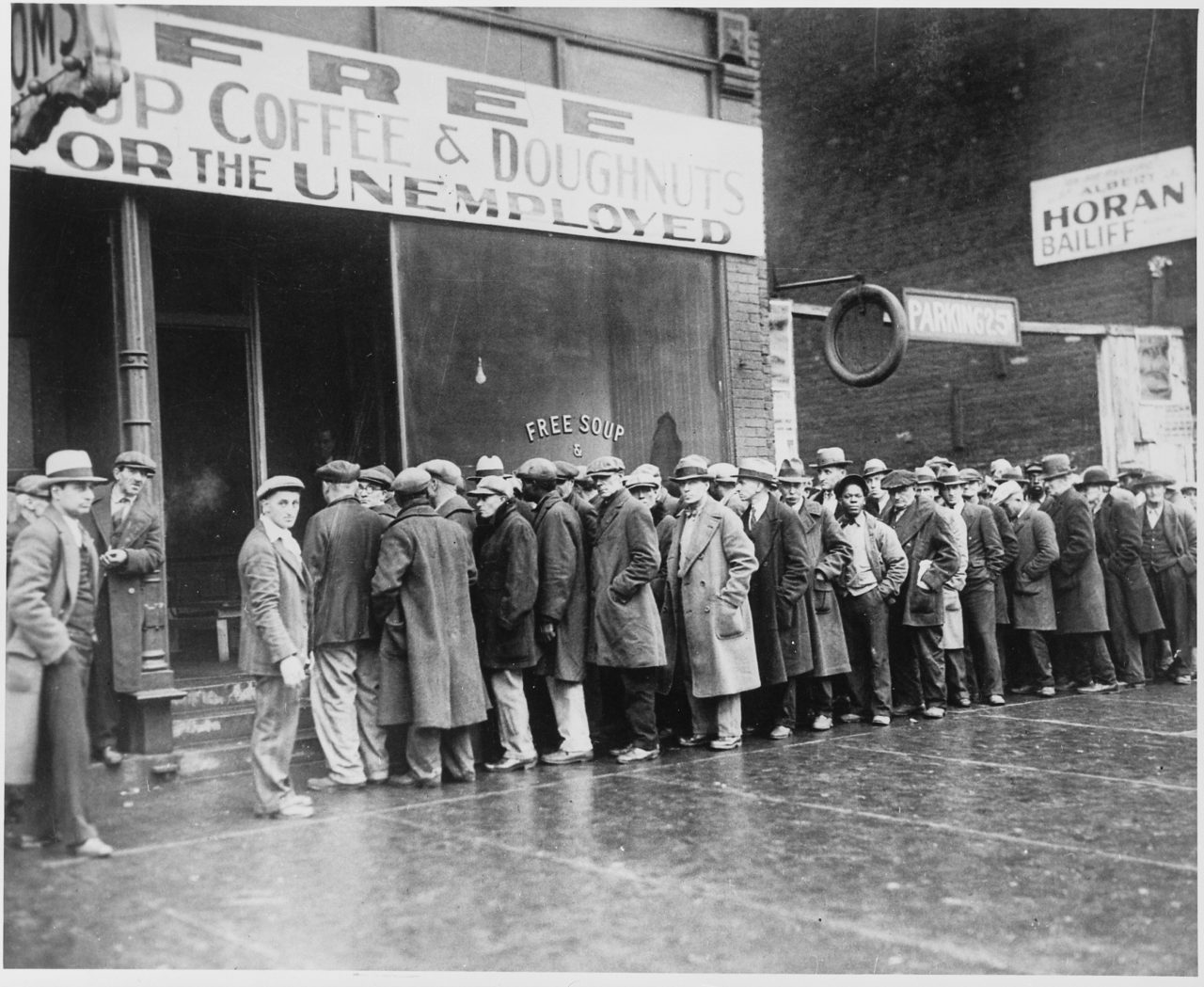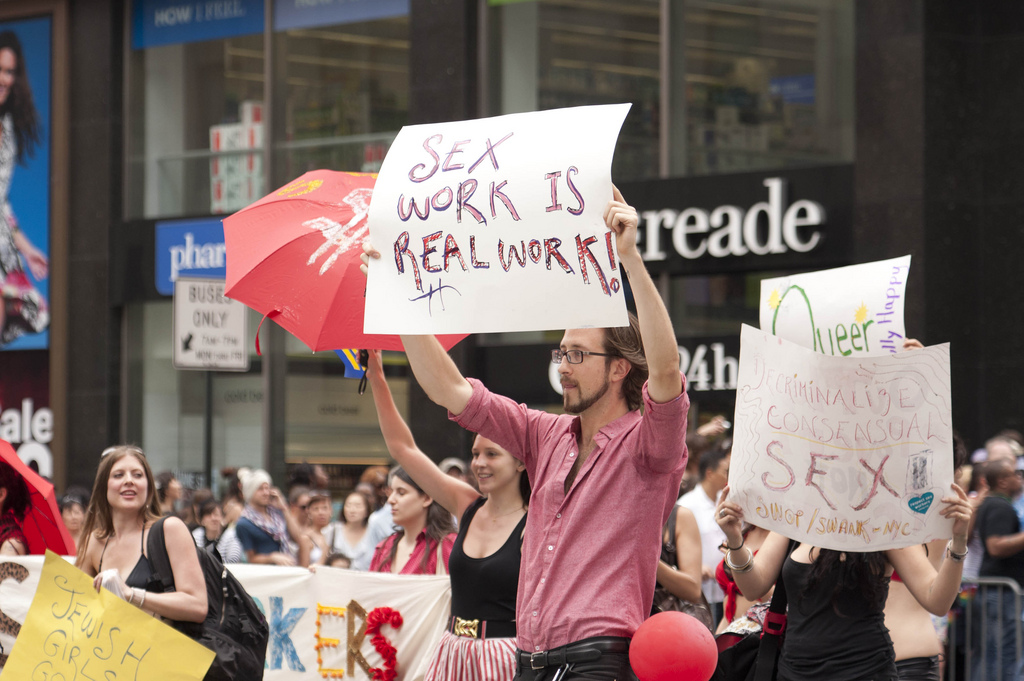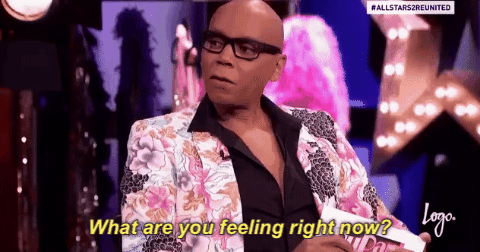In November 2018, the BBC published a story about a woman they called Julie (her real identity was protected). Julie was on unemployment benefits and being moved onto Universal Credit, the government’s new benefit system for working-age adults. During the transition, her benefit payments were delayed by eight weeks. Broke and struggling, Julie decided to take on some work she’d been offered. She really didn’t want to do it, she said, but she was “desperate”.
Some people might shrug at this story. The 52 percent of Brits who think that unemployment benefits “discourage work” may feel vindicated by the fact that not receiving her benefit money pushed Julie into taking a job. And they’re unlikely to find it that troubling that Julie hated her job: two-thirds of Brits say that people on unemployment benefits should have to take any job they can get, with their benefits being immediately withdrawn if they turn down a job offer. Indeed, the UK government says that unemployment benefits will be taken away from anyone who doesn’t apply for enough jobs, do all they can to find work, or leaves a job without good reason.
But do people’s opinions on this issue change if they learn that the job Julie was forced to take was not stacking shelves or sweeping streets, but sex work? And if so, why? When it comes to weighing up how much state support the unemployed should get with what type of work nobody should have to do, where do most people draw the lines? And what impact will those lines have upon our livelihoods and our economies?

Workplace ‘rights’ are always changing
The idea that liking your job is a luxury, not a right, is well grounded in human history. It probably wasn’t much fun to be a Victorian chimney-sweep, or an Edwardian scullery-maid, or a waste picker in India today, but people did these jobs because the alternative was usually starving.
Unemployment benefits weren’t a thing in Britain until 1911, and even then they were only paid to former workers who had recently lost their job. (There have been “Poor Laws” since the 16th century which were theoretically about helping people in poverty, but in reality amounted to little more than shutting poor people up in prisons or workhouses.) Only in 1948 did the National Assistance Act give state money to people who hadn’t or couldn’t work.
But opinions on work rights change. You’d probably be hard pressed today to find a Brit who think it would be okay to make children work full time, or force an adult to work twelve hours a day and six days a week, or insist that an employee handle dangerous machinery without protective gear. But you wouldn’t have to go back far in time (or far across the world) to find societies that regarded these workplace ‘rights’ as luxuries for only those who can afford to be picky about what work they take on.

Are there any jobs that everyone agrees no one should have to do?
Well, there are lots of jobs that some people think no one should have to do. And there are some jobs that governments have effectively insisted no one do by making them illegal, like drug dealing. But there are no jobs that everyone agrees should be off-limits.
For sex work, which is legal in Britain (with some exceptions), opinions are very divided. Just under half of Brits think most sex workers are “victims of exploitation”. But plenty of sex workers disagree (two-thirds describe their job as “fun”, and half as “rewarding”). And Brits seem happy enough to use a sex worker’s services: about one in eight British men say they use prostitutes. Even plenty of free-market economists are fans, because a ‘free market’ means being able to sell anything you want as long as you can find a willing buyer. (Quote from the Economist: “Making the purchase of sex between two consenting adults illegal is deeply illiberal.”)
Of course there’s a difference between allowing people to do a job others might disapprove of and insisting people to do a job they disapprove of. But when it comes to those on unemployment benefits, that distinction becomes a bit blurry.
Try this thought experiment: if the only job a person on unemployment benefits could get was sex work, but like Julie, they found it “degrading”, should they be allowed to turn it down? What if they felt as negatively towards it but the job was something most people consider mainstream - like cleaning or manual labour? What if the job offended their personal values - like being a receptionist at a surgery that offered abortions, or working in a butchers when they were vegan?
Whatever your answers may be, lots of people will disagree with you. And that’s where allowing exceptions to the idea that “people on unemployment benefits must take a job except when…” gets complicated. Plus, considering all the different opinions out there, who should be given the power to decide when someone's dislike of a job is valid enough for them to stay unemployed and claiming state support?

Why might people say benefit claimants should take any job, regardless of dislike?
People could point out that so many employees dislike their jobs (more than half say they want to switch career entirely) that without firm rules everyone would quit their jobs and live on state handouts. But that argument ignores the fact that for most people that would be such a big step down in their quality of life as to make it rather unenticing (Brits claiming unemployment benefits get about £70-odd quid a week. The average British full-time worker gets £550 a week).
So people might instead say that it’s not fair for the government to spend any more on unemployment benefits than absolutely necessary. That might be because they think taxes could be lowered if the government had a smaller welfare budget, meaning workers could keep more of their paycheck, and businesses more of their profits. Some economists would say that these extra wages/profits could then boost the economy because people might buy more stuff and businesses might invest and grow bigger. Both these things could create more jobs.
Or people might want the government to use the money it currently spends on unemployment benefits for other things that everyone can benefit from - like repairing roads, or hiring more police officers, or putting more money into the NHS. (The government currently spends £2 billion on unemployment benefits. As a comparison, it spends £125 billion a year on the NHS).

Why might people say benefit claimants shouldn’t have to take *any* job they dislike?
Some people think we should scrap all requirements that anyone on unemployment benefits should have to take a job if offered it. They might point out that people who are unhappy at work tend to be so unproductive that the businesses who hire them get a really bad deal: the US economy apparently loses $550 billion a year from unhappy employees not doing their jobs very well.
People might also think that it’s better that people stay unemployed and wait for a job that makes the best use of their skills or talents. After all, once employed it becomes harder to job search, because work takes up lots of your time and makes it difficult to go to interviews. So the logic is that someone like a lawyer who has fallen on hard times and is drawing benefits is better off putting all her energy into finding a new law job that taking a stint as a cleaner.
And of course there’s the question of inequality. The more wealth and education someone has growing up, the more likely they are to be able to have lots of options when it comes to choosing a job, and the more likely they are to be qualified for the type of well-paid, creative and meaningful roles that most people see as desirable. Some people don’t like that being able to choose work you like should be so strongly linked to how rich you were growing up.
People higher up the socioeconomic ladder are also more likely to have savings or other forms of income that allow them to remain unemployed while they search for a job they like. Some people would argue that, especially if that wealth comes from things like inheritance or clever tax avoidance, they have put in no more work for that money than poorer people have for their benefits. That makes it wrong to allow one group but not the other to turn down jobs until they find one they like.
But what do you think?





